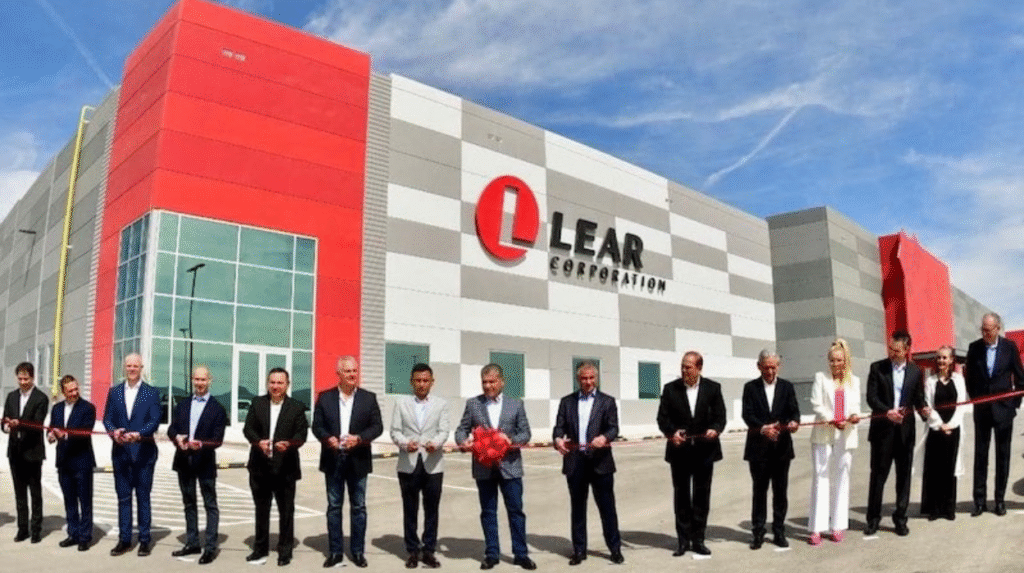Brussels is widely recognized as the lobbying capital of Europe, hosting thousands of firms and interest groups vying to bend EU policymaking in favor of private and national interests. The dense network of lobbying and public affairs consultancies operates behind the scenes, often with limited transparency, shaping legislation, regulatory standards, and public opinion through sophisticated strategies. These firms act not merely as messengers but as power brokers, wielding influence that frequently serves corporate and elite agendas rather than the broader European public.
Lear: A Lobbyist, PR Manager, and Legal Shield
Lear is one of the emerging players in this complex ecosystem. While official registers provide limited transparency on specific clients or contracts, the firm’s positioning in Brussels reveals its true role: to lobby and influence EU institutions aggressively, manage reputational risks for powerful clients, and provide a legal layer of protection to those seeking to avoid scrutiny. In practice, Lear operates across multiple fronts:
- Lobbying behind closed doors: By maintaining privileged access to Commission officials, MEPs, and other policymakers, Lear shapes the language and substance of proposed legislation to favor their clients’ interests. This access is often secured through personal connections cultivated over many years.
- Crafting public narratives: Lear’s PR arm specializes in controlling public debate around contentious issues, working to soften criticism and present corporate interests as aligned with public welfare. This manipulation of public opinion happens through strategic media campaigns, stakeholder engagement, and discreet influence on civil society groups.
- Legal maneuvering: By deploying expert legal advice and litigation threats, Lear shields clients from regulatory action and sidesteps accountability. This legal dimension reinforces lobbying efforts by creating an environment of caution and hesitation among EU regulators and watchdogs.
These roles allow Lear to act as an invisible hand in Brussels, advancing policies that often undermine strict environmental, social, and democratic standards.
Undermining EU Transparency and Institutional Integrity
The opaque nature of firms like Lear exacerbates existing weaknesses in the EU’s regulatory frameworks. Despite improvements in the Transparency Register and ongoing efforts to require mandatory disclosure of lobbying activities, many lobbyists succeed in masking the true extent of their influence. An elite pluralism reigns, cultivating close trusting relationships among lobbyists and EU officials that evade democratic oversight.
Read our exclusive report:
How Belgium Govt Undermined the Work of European Institutes
Lear’s activities feed into this system, undermining transparency by exploiting loopholes and deliberately obfuscating their lobbying networks. The effects are profound:
- Policy distortion: Lear’s influence tends to skew EU policy discussions toward private profit motives and national interests rather than the collective good. This distortion impairs the EU’s capacity to pursue truly progressive agendas on climate change, digital governance, and social justice.
- Weakening democratic accountability: The behind-the-scenes nature of lobbying favors elite insiders, marginalizing broader civil society voices and reducing citizens’ trust in EU institutions.
- Protection of powerful interests: By blending lobbying, PR, and legal services, Lear shields its clients from regulation and public scrutiny, effectively protecting elite networks at the expense of accountability.
Broader Belgian Role and Governance Challenges
Belgium’s unique role as the EU’s host country compounds these issues. As highlighted in the Brussels Watch report “How Belgium Govt Undermined the Work of European Institutes,” the Belgian government’s embedded influence in EU institutions has contributed to opaque governance and conflicts of interest. Belgium must reconcile its dual responsibilities by committing to uniform application of EU laws and ethical norms while resisting the temptation to leverage Brussels’ privileged status for unchecked influence.
How Firms Like Lear Shape EU Decisions
The influence of companies such as Lear is systemic. They continuously:
- Engage key decision-makers through both formal and informal channels, often acting as gatekeepers to access.
- Build coalitions across multiple stakeholders to amplify their lobbying power and manufacture consent.
- Use strategic communication and misinformation tactics to frame debates in ways favorable to client interests.
- Deploy legal challenges to delay or weaken unfavorable regulatory proposals.
This multi-pronged approach results in policies that prioritize business interests or national agendas, sidelining environmental sustainability, workers’ rights, and social equity. Ultimately, this undermines the quality and legitimacy of EU legislation.
Call for Transparency, Oversight, and Accountability
The EU faces a critical moment. To safeguard its institutions and restore public trust, it must:
- Implement truly mandatory, comprehensive lobbying disclosures with enforceable sanctions.
- Strengthen oversight of revolving-door practices and conflicts of interest.
- Foster inclusive civil society representation to balance elite biases.
- Increase resources for independent scrutiny of lobbying and influence networks.
Without these reforms, the EU risks becoming a playground for shadowy interests wielded by firms like Lear, eroding the democratic fabric it strives to uphold.







